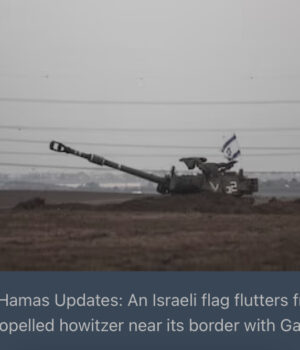In the early hours of today, Israel launched a series of airstrikes on the Gaza Strip, marking a significant escalation in the ongoing conflict in the region. Simultaneously, Israeli aircraft carried out strikes in southern Lebanon, further intensifying the volatile situation. Israeli Prime Minister Benjamin Netanyahu wasted no time in convening a meeting of his highest-ranking military officials and the war cabinet to evaluate the rapidly evolving crisis.
The resumption of hostilities in the Gaza Strip underscores the deep-rooted complexities of the Israeli-Palestinian conflict. Tensions have been simmering for years, and sporadic outbreaks of violence have become tragically familiar. The recent series of airstrikes, however, signals a worrying increase in hostilities, with the potential for more devastating consequences.
Gaza, a densely populated enclave on the eastern coast of the Mediterranean, has been the epicenter of this protracted conflict. The Israeli airstrikes are a response to a barrage of rockets fired from Gaza into Israeli territory. This back-and-forth exchange of fire has been a recurring pattern, but the recent intensification raises concerns about civilian casualties and the safety of those living in the region.
The impact of such military actions extends beyond borders, with Israel targeting locations in southern Lebanon. This cross-border escalation brings Lebanon into the fold of the conflict, further complicating an already volatile region. It underscores how regional dynamics and entanglements can quickly draw neighboring nations into the conflict’s orbit.
Prime Minister Netanyahu’s decision to convene his top military brass and war cabinet reflects the gravity of the situation. Israel’s leadership is acutely aware of the repercussions that a protracted and intensifying conflict could have on regional stability and international relations. As such, their response and decision-making will be pivotal in determining the path forward.
In this increasingly polarized and fraught landscape, international diplomacy and peacemaking efforts are more critical than ever. The international community, including key players such as the United States and the United Nations, must work to de-escalate the situation and facilitate dialogue between the parties involved.
The tragic reality is that conflicts like this, which have persisted for generations, have brought immense suffering to the people living in these regions. Civilian casualties, displacement, and the destruction of infrastructure are grim and recurring outcomes. The hope for a peaceful resolution remains, but the road to such an agreement is fraught with challenges and entrenched positions.
As the situation continues to unfold, the world watches with bated breath, hoping for an end to the violence and a renewed commitment to dialogue and peaceful coexistence in this troubled region. The immediate future remains uncertain, but the imperative to find a lasting solution is as pressing as ever.










